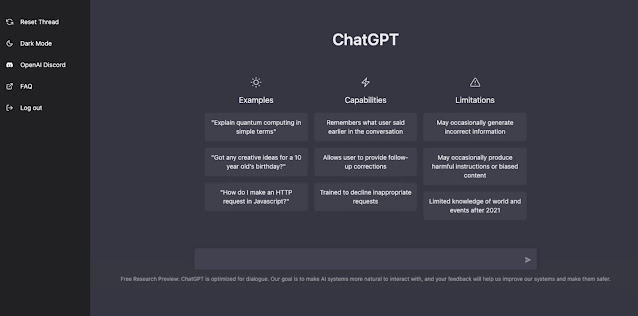ChatGPT is a large language model developed by OpenAI based on the GPT-3 architecture, designed to generate human-like responses to natural language prompts. As an AI-powered chatbot, ChatGPT is capable of answering a wide range of questions, engaging in casual conversation, and even generating creative content like poetry or short stories.
Some of the pros of using ChatGPT include:
Wide range of knowledge: ChatGPT has access to a vast amount of information, and can provide answers to a wide range of questions on various topics.
Fast and efficient: ChatGPT can provide quick responses to questions without the need for human intervention, making it a fast and efficient tool for obtaining information.
Available 24/7: ChatGPT is available to users around the clock, making it a convenient resource for obtaining answers at any time of day or night.
No human bias: Since ChatGPT is an AI-powered tool, it is not subject to the same biases or prejudices that may affect human interactions.
However, there are also some potential cons to using ChatGPT:
Limited understanding: While ChatGPT can generate human-like responses, it may not always fully understand the context or nuances of a question or conversation.
Lack of personal touch: ChatGPT is not capable of providing the same level of empathy or emotional support that a human conversation partner may offer.
Potential errors: ChatGPT is not infallible, and may sometimes provide incorrect or incomplete information.
ChatGPT is a powerful tool with a wide range of capabilities, but it is important to use it judiciously and recognize its limitations. There are some countries that are banning ChatGPT, due to FUD (Fear, Uncertainty and Doubt).
There are some concerns and criticisms around the use of AI-powered chatbots like ChatGPT. Some people argue that these chatbots could potentially cause harm or be misused in various ways. Here are some common FUD (fear, uncertainty, and doubt) that people may have about ChatGPT:
Privacy concerns: Some people are concerned about the collection and storage of personal data when interacting with chatbots like ChatGPT. There are worries that the chatbot may be recording or storing sensitive information without the user's consent.
Job loss: There are concerns that chatbots like ChatGPT may replace human workers, leading to job loss in various industries.
Bias and discrimination: There are concerns that ChatGPT, like other AI-powered tools, may have inherent biases that could result in discriminatory or harmful responses.
Dependence on technology: Some people worry that reliance on chatbots and other AI tools may cause people to become too dependent on technology, leading to a loss of essential skills and critical thinking abilities.
It's important to recognize and address these concerns while also acknowledging the potential benefits and capabilities of AI-powered chatbots like ChatGPT. Ultimately, responsible use and development of AI technology can help to mitigate these potential issues.
Source: Some or all of the content was generated using an AI language model


No comments:
Post a Comment